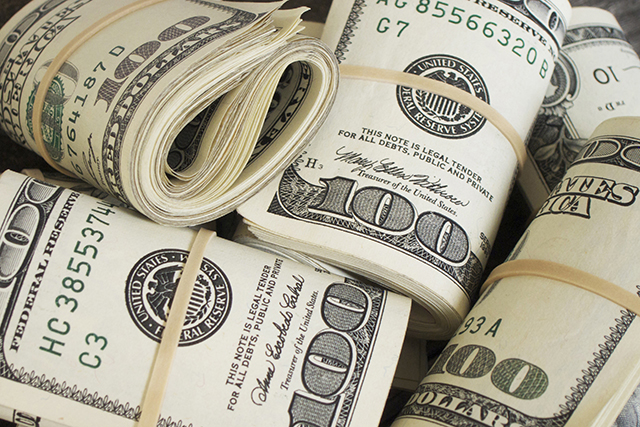
Photo courtesy of Flickr
According to the Pew Research Center, 76 percent of Americans feel money has a greater influence on politics today than before. And 64 percent believe that the high cost of presidential campaigns discourages good candidates.
Most striking is that this concern over money in politics is bipartisan, with 62 percent of Republicans and 68 percent of Democrats saying that the high cost of presidential campaigns repels candidates from running.
Republican Arizona senator John McCain made campaign finance reform a central issue of his 2000 presidential primary campaign. Members of Congress have signed onto bills that would create change in funding elections.
The surprisingly effective primary campaign of Bernie Sanders earlier this year emphasized reducing the influence of corporations and the extraordinarily wealthy in politics. Hillary Clinton has spoken out in favor of campaign finance reform several times. Donald Trump has bragged about self-funding his own campaign and not being tied down to any PAC or SuperPAC.
To understand why Americans are angry about the outsized role of big money in politics, we need to look at who is donating and why these people are contributing incredible amounts of money to campaigns. A possible reason is the theory that corporations and wealthy individuals pour money into campaigns as a way of shifting public policy, particularly policies that favor those who are contributing the colossal amounts of money. As a result, public policy that benefits the wealthy donors — winners write the rules.
There are many different issues that are impacted by money in politics. Lax regulation of the environment can be connect to lobbying and donations from large oil, gas and energy companies. According to the Center for Responsive Politics, energy and natural resources industries have contributed $149 million dollars to federal candidates in this election alone — a total of $992 million since 1990.
With big money funding election campaigns, issues like funding for higher education, the incredible debt that is burdening college graduates and the growing inequality in our society are not being adequately addressed. The cost of running for office is so high that young people, women, people in the middle class and people of color often find it difficult to raise the money to compete with candidates funded by the wealthy.
In a democracy of one person, one vote, the influence of wealthy donors on campaigns, as well as the overall effect of money in politics, drowns out the voices of the average American citizen. It creates an atmosphere in which Americans feel like their government is not listening to them.
It is clear that most Americans have identified with money in politics, especially in 2016, as a threat to our democracy. But what are the solutions?
A system of publicly funded elections can and does serve as an alternative to the current system of funding elections. With public campaign financing, those who normally cannot afford to run for office are able to finance their campaigns. It also reduces the influence of big money in politics and campaigns and reduces the huge amount of time candidates spend on fundraising, thus increasing the time spent of important discussion issues.
While public financing laws have arguably made significant progress in counteracting big money in politics in places like Connecticut, Maine, Washington State and New York City, there is plenty of work to be done, including becoming more informed and spreading the word.
On Nov. 15, Joan Mandle, the executive director of Democracy Matters, a nonpartisan and nonprofit organization aimed at getting money out of politics, will be giving a lecture in ASB 136 at 7:00pm titled “Who Owns Democracy? Money and Politics in the 2016 Election.”
acordaro@ramapo.edu





